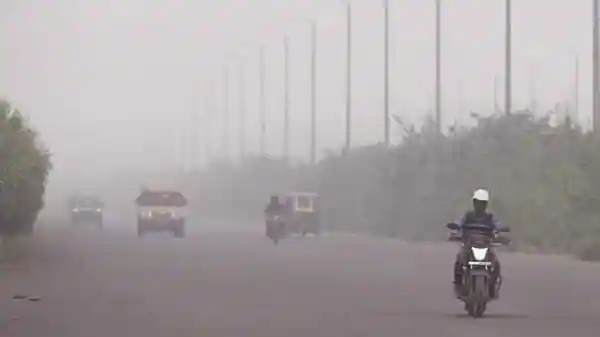
[ad_1]
The rise in pollution levels is leading to various health issues. Those who are suffering from respiratory problems or those whose lungs are compromised like in the COVID-19 patients are at a higher risk of health complications due to rising pollution levels.
For COVID-19 patients, the rise in air pollution levels can add to various health complications.
“Many COVID-19 patients already have a compromised lung functioning. Their pulmonary test is not good, which is definitely a more restrictive pattern of lung functioning. Due to pollution, oxygen levels go down,” said Dr Ashish Khattar, Senior Consultant, Internal Medicine, Venkteshwar Hospital.
Further Dr Khattar said that due to air pollution, the rise in irritants would lead to compromisation of the lungs.
“Lungs will starve for more oxygen and then, the lungs would become more breathless,” added Dr Khattar.
According to World Health Organisation (WHO) report, out of 10 people, nine people are breathing polluted air with high levels of pollutants, which are dangerous, causing the rise in premature deaths each year.
According to experts, people who have a history of respiratory diseases, such as asthma, Chronic Obstructive Pulmonary Disease (COPD), Interstitial lung disease (ILD) are going through health problems.
“With the winter setting alongside Diwali festive season, we have seen an appreciable reduction in the temperature and increase in the ambient pollution level. When these pollutants are inhaled by a person, they cause respiratory symptoms such as increased cough, breathlessness, sputum production and wheeze,” said Dr Arunesh Kumar, Senior Consultant and Pulmonology Department Head at Paras Hospital, Gurugram.
Dr Kumar further said, “People who have a history of respiratory disease such as asthma, COPD, interstitial lung disease, start noticing deteriorating symptoms. So, it is important that the maintenance treatment for these diseases has strictly adhered to and one should visit the doctor if they notice that the symptoms have started deteriorating.”
Dr Shuchin Bajaj, who is Founder Director of Ujala Cygnus Group of Hospitals said that with winter conditions setting in, the dust and particulate material from vehicular pollution and smoke from crackers have caused smog-like conditions.
“The dangerous mix of pollutants in the air also increases the risk of lung cancer, just like smoking cigarette toxins does. For children who grow up in highly polluted cities like Delhi and Gurugram, the impact of this dangerous air can be catastrophic for their undeveloped lungs and respiratory systems,” Dr Bajaj said.
He further said that a significant spike was seen in people reporting respiratory problems in such weather and environmental conditions, with common complaints including cough and breathlessness.
“It is well known that lighting fireworks release a toxic mixture of gases which include carbon monoxide, carbon dioxide, sulfur dioxide, and even manganese and cadmium particles in the atmosphere. This means residents of a city are practically inhaling poisonous air, which is severely affecting their lung health. There would be no surprise if our pulmonary department would be overflowing with patients,” said Dr Bajaj.
Speaking about precautions to be taken, Dr Kumar said,” We should have a well-balanced diet which is rich in protein and avoid outdoor activities during the extreme pollution times, between morning 7-10 am and in the evening from 5-9 pm.”
He further instructed that if one is on certain inhalers and tablets, one should strictly adhere to them.
“People who don’t have prior respiratory illness should monitor their symptoms and once again, try and avoid outdoor exercises during the peak pollution hours. One should exercise indoors and do yoga. These are very good ways of keeping your lungs fit,” added Dr Kumar.
Never miss a story! Stay connected and informed with Mint.
Download
our App Now!!
[ad_2]